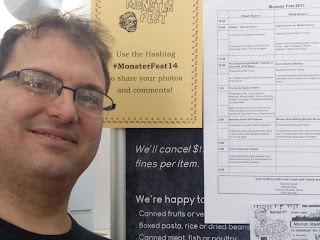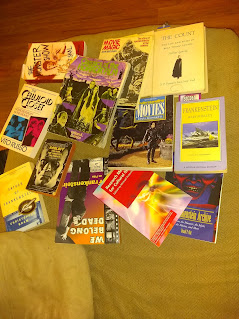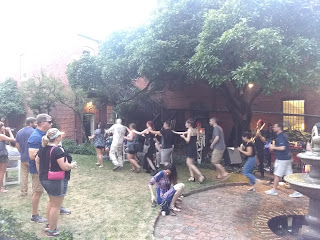It has been a while since I wrote a blog post. I have actually been working on a rather long blog for some time, but it is getting so involved, I may try to publishing it elsewhere as a non-fiction piece. But I digress. It is a new year, and 2026 is upon us. Therefore, it is time for that annual post where I discuss my submission numbers and successes. This is mainly for inspirational purposes for other writers. I know we write and submit, write and submit, and often times receive too many rejections, but as I have mentioned earlier in this blog, we should not count the rejections, or even the acceptances for that matter, because those are things we cannot control. Rather, we should count the submissions. We can control those.
However, I did receive a few successes this year, one of which is pictured above. But first, let's take a look at the number of submissions I made in 2025. I broke a few records this year, so it was a good year for submissions. I currently have two novels shopping around, and I submitted them a total of 17 times this year. That is a new personal record, shattering my old record of 10 in 2018, and I am still waiting to hear back from a number of those submissions. Fingers are crossed.
I also broke my personal record for the most short story submissions with 37, which beats my old record of 32 made in 2019. Additionally, I made 14 poetry submissions, which tied my second most for that genre. I did not make any non-fiction story submissions this year. This adds up to a grand total of 68 total submissions for the year, which also breaks my previous record of 53 also made in 2018. My annual goal of 50 submissions per year was not only reached, it was handily surpassed.
So what did all these submissions get me? There is generally a direct correlation of the number of submissions to the number published works, and this year was no exception. Two works found homes, one short story, and one poem. My short story, "Rabbit Holes," found a home after just two submissions, which sets yet another record. It will be published in the anthology pictured above, Rebels by Inkd Publications. I am very excited about this one for obvious reasons. It may be my best short story yet, so if anyone is interested in picking up a copy, their website can be found here.
Additionally, one of my poems, "The Giant Fig Tree," recently found a home at Teach. Write., which is a publication that has published more of my works than any other. The editor, Katie Winkler, even sent me a very nice note encouraging me to keep sending her my work, which was much appreciated. The publication with a link to the current issue where the piece can be found, is here.
Two success may not seem like a lot, but they still mean something to me. It means my work is being discovered and distributed by at least a few publications. It is like the gambling addict, pulling that lever on the slot machine again and again after putting in nickel after nickel. To some it is a one-armed bandit, but when that machine finally pays off, there is much rejoicing. To compare it to my previous years' accountability posts, here are links to my post in 2022, and another one in 2023, and finally last's year's post from 2024.
As of this writing, I have already made a number of submissions, and one more work has found a new home in 2026. I will post about that in a future blog. Until then, let's all keep writing.























